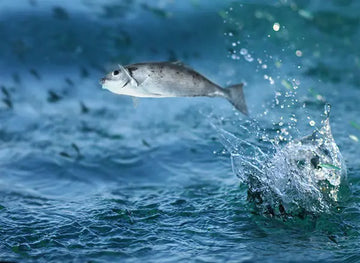Fish farming is a rapidly growing industry in India, with the potential to provide a significant source of protein for the country’s population. However, the industry is not without its challenges. One of the most significant issues is pollution. Fish farming can lead to the release of pollutants into the environment, which can have serious health consequences for both humans and aquatic life.
Pollution from fish farming can take many forms. One of the most common pollutants is excess nutrients. Fish farms often use large amounts of feed to promote growth, and the excess nutrients from this feed can enter the surrounding environment. This can lead to the growth of harmful algae blooms, which can deplete oxygen levels in the water and harm aquatic life 1.
Another common pollutant is chemicals. Fish farmers often use chemicals to control pests and diseases, but these chemicals can also enter the surrounding environment. This can lead to the contamination of water sources and the accumulation of toxins in fish and other aquatic life 1.
The health hazards associated with pollution from fish farming are numerous. Exposure to excess nutrients can lead to the growth of harmful algae blooms, which can cause respiratory problems and skin irritation in humans 1. Exposure to chemicals can cause a range of health problems, including cancer, reproductive problems, and developmental issues 1.
In conclusion, pollution from fish farming is a serious issue in India that has significant health consequences for both humans and aquatic life. It is important that the industry takes steps to reduce pollution and protect the environment. This can include reducing the use of chemicals, improving waste management practices, and promoting sustainable farming practices.
References
1. COVID-19 and the food and agriculture sector: Issues and policy responses (oecd.org)





